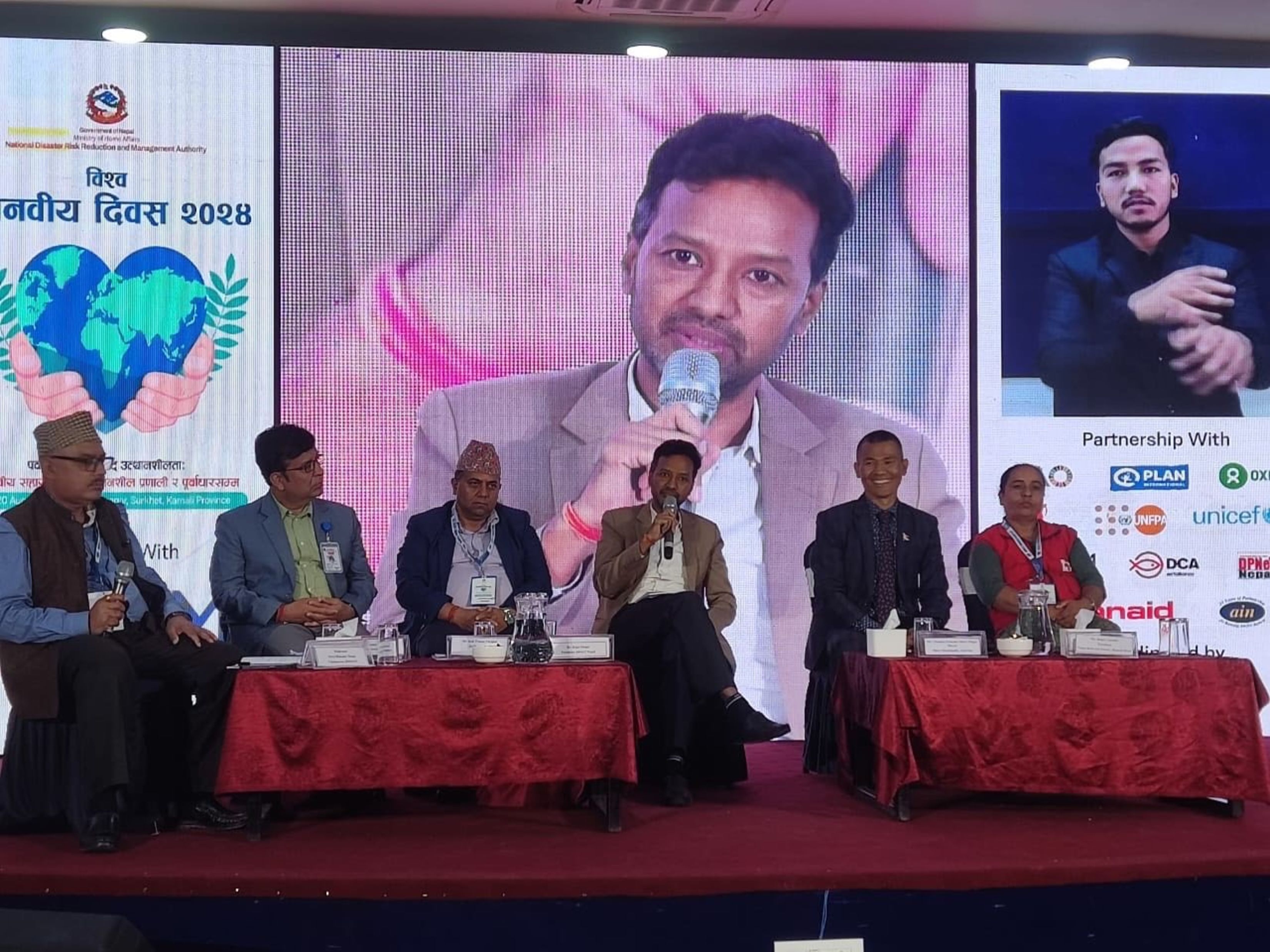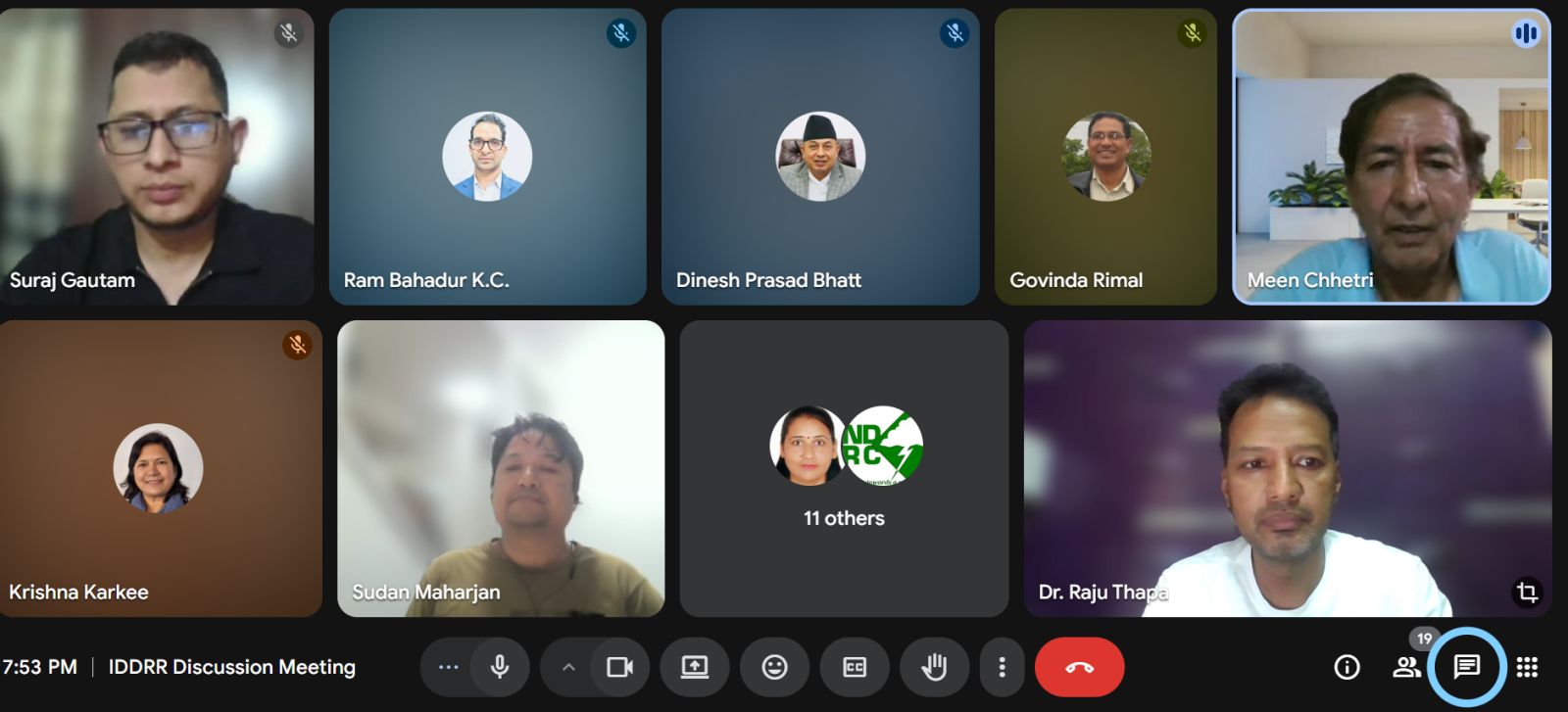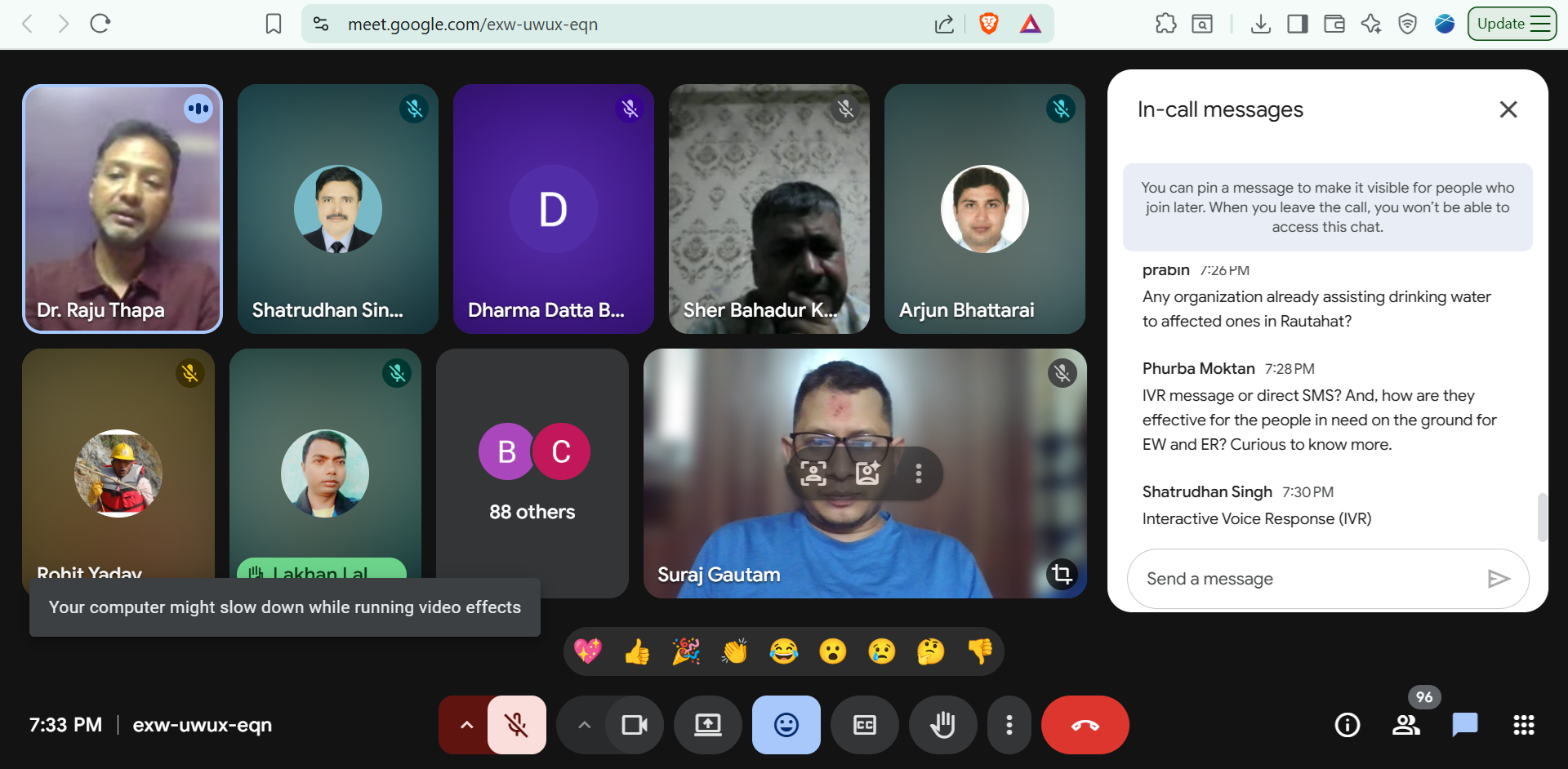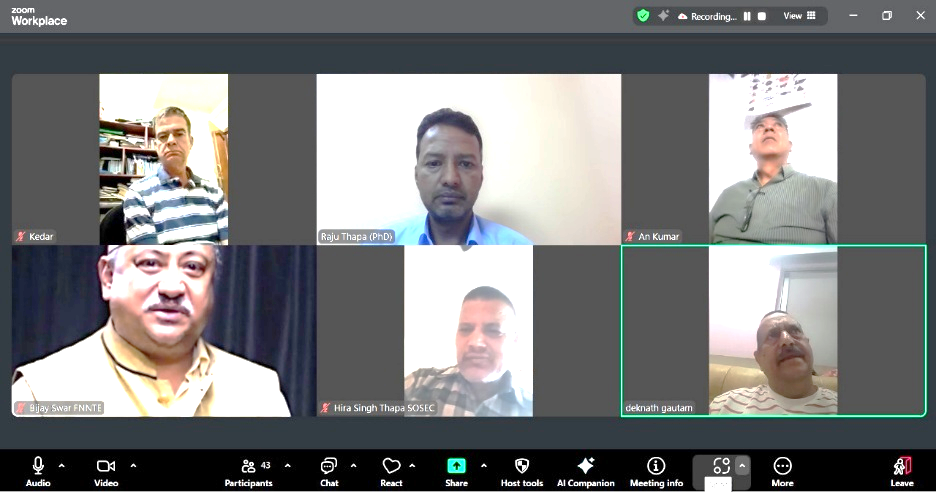Celebration of World Humanitarian Day

On August 19 and 20, 2024, KIRDARC Nepal, in collaboration with NDRRMA and various agencies including DPNet organized a two-day event in Birendranagar, Surkhet, to observe World Humanitarian Day. DPNet Nepal actively participated in the Program from its preparatory planning phase. Dr. Raju Thapa, Chairperson DPNet Nepal, and Mr. Surya Bahadur Thapa, Immediate Past President (IPP) participated in the program and chaired a session along with shared insights on overcoming challenges and enhancing motivation in humanitarian actions.
This day, celebrated annually on August 19, honors humanitarian workers and raises awareness of global humanitarian efforts. The event focused on stopping the normalization of attacks on humanitarian workers, preventing civilian suffering, and enforcing international law. One of the key issues highlighted during the event was the risk faced by humanitarian workers, who often encounter unfair accusations while carrying out their duties, leading to hesitation in responding to disaster-affected areas. To address this, the program emphasized the need for proper identification and support for these workers. Additionally, skill enhancement initiatives were discussed to prevent unintended harm during rescue operations, with a call for both governmental and non-governmental sectors to take action. The event also stressed the importance of establishing networks and funds to protect at-risk workers. The program concluded with a focus on recognizing and rewarding humanitarian workers, particularly on occasions like World Humanitarian Day, to encourage their continued efforts.
The event also emphasized the need for resilient structures and systems in humanitarian assistance. A 10-point Karnali Declaration on Disaster Risk Preparedness and Response was issued, focusing on disaster resilience in the mountain region. This declaration committed to the coordination and cooperation of federal, provincial, and local governments, as well as development partners, in policy formulation and implementation. It also ensured the meaningful participation of vulnerable communities in disaster risk reduction, preparedness, response, and rehabilitation. It even highlighted disaster events from 2072 to 2080, the experiences from the "Gorkha Earthquake" to the “Jajarkot Earthquake” which served as a valuable resource of learnings for earthquake response, humanitarian aid, recovery, reconstruction, and rebuilding efforts. Based on this, the declaration stated that the three-tier government would work together to improve the effectiveness of relief distribution through a unified system which is also mentioned. Additionally, the declaration highlighted the challenges faced by Nepal's agricultural sector, which is the backbone of the country's food system, during disasters. It stressed the importance of developing food security and livelihood plans at federal, regional, and local levels, focusing on disaster preparedness, response, and reducing agricultural risks. The promotion of indigenous crops and the effectiveness of agricultural insurance schemes were also emphasized as critical measures to protect the sector during crises. Overall, the declaration recognized the need for political, institutional, and programmatic cooperation among all organizations involved in DRRM. It called for a strong international voice to address the unique challenges faced by a mountainous and landlocked country like Nepal.
Dr. Raju Thapa, Chairperson, DPNet, emphasized the growing challenges faced by humanitarian workers in Nepal. He highlighted that these dedicated individuals, who tirelessly engage in life-saving efforts without concern for their own safety, often find themselves accused of various wrongdoings. This has created a situation where humanitarian workers must carefully consider their safety before responding to disaster event. Dr. Thapa called for the government to provide official identification for humanitarian workers, ensuring their protection in the field. He urged the government to assist in safeguarding these workers so they can perform their duties without fear of legal entanglements or personal harm. Additionally, Dr. Thapa stressed the need for both governmental and non-governmental sectors to focus on capacity building for humanitarian workers. He acknowledged incidents where, despite their best intentions, rescue efforts led to further injury or damage to disaster-affected individuals, highlighting the importance of training and preparedness.
Mr. Surya Bahadur Thapa, IPP, DPNet, suggested the establishment of a safety network for humanitarian workers at risk. He also proposed creating necessary funds to ensure their protection. Furthermore, to motivate and honor the contributions of these workers, he advocated for annual awards and recognition on occasions like Humanitarian Day.











